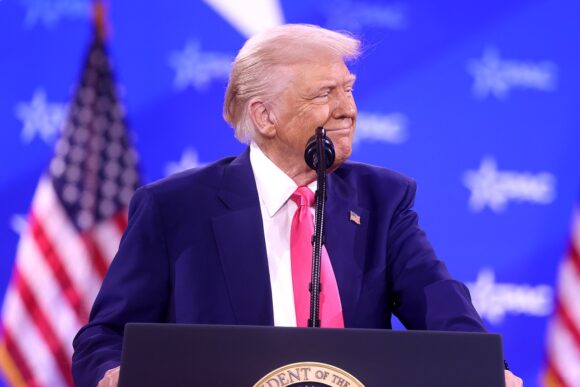Non-essential personnel and their families stationed at the US embassy in Baghdad are set to be evacuated due to growing security concerns, according to US government sources.
While officials have not disclosed the specific reason for the evacuation, CBS News—partnered with the BBC—reported that US intelligence suggests Israel is preparing to launch an operation against Iran. This development is said to be one of the factors prompting the advisory for Americans to leave the region, amid fears that Iran could retaliate by targeting US interests, particularly in Iraq.
The move comes at a tense time, as diplomatic negotiations between Washington and Tehran over Iran’s nuclear programme have stalled. Despite the rising tensions, US Middle East envoy Steve Witkoff is still expected to meet with Iranian Foreign Minister Abbas Araghchi for talks in Muscat on Sunday, according to Axios.
“We continuously evaluate our diplomatic presence around the world,” a US State Department official told the BBC. “In light of recent assessments, we have chosen to reduce the size of our diplomatic footprint in Iraq.”
President Donald Trump, speaking at the Kennedy Center, confirmed the decision, stating: “We advised Americans to leave the region because it could become a dangerous place—we’ll see what happens.” He reaffirmed the US stance on Iran’s nuclear ambitions, adding, “We’re not going to allow Iran to build a nuclear weapon.”
President Trump has consistently expressed his desire to negotiate a deal that would prevent Iran from acquiring nuclear weapons. However, earlier this week, he reportedly had a “tense” 40-minute phone conversation with Israeli Prime Minister Benjamin Netanyahu, who remains in favour of a military approach over diplomacy.
The International Atomic Energy Agency (IAEA) convened in Vienna this week to discuss Iran’s nuclear activities. This followed the release of a report criticizing Iran’s “less than satisfactory” cooperation, particularly regarding unexplained nuclear material found at undeclared sites. Tehran has rejected the report, claiming it is based on “forged documents” supplied by Israel and is “unbalanced.”
The extent to which the US evacuation decision reflects actual security threats or strategic signaling remains uncertain. However, Iranian Defence Minister Aziz Nasirzadeh warned that Iran would retaliate against US military bases in the region if nuclear talks collapse and President Trump authorizes strikes on Iranian targets.
In a further development, US Defence Secretary Pete Hegseth has also greenlit the voluntary departure of military families from multiple countries in the Middle East, including Kuwait and Bahrain, according to Reuters.
Testifying before Congress on Wednesday, Pentagon officials suggested that Iran may be progressing toward a nuclear weapon, citing “plenty of indications” pointing to such a trajectory. Iran maintains that its uranium enrichment programme is intended for civilian energy needs and insists it has no ambition to develop nuclear arms.
Meanwhile, the UK’s Maritime Trade Operations—a Royal Navy unit—issued a warning on Wednesday that mounting military tensions in the region could pose risks to commercial shipping. In the wake of the US evacuation announcement, oil prices surged by over 4%, driven by concerns that regional instability could disrupt global supply chains.
Currently, there are approximately 2,500 US troops stationed in Iraq, according to the US Department of Defense. This latest development echoes events from January 2020, when Iran launched missiles at Iraqi bases housing US forces in retaliation for the killing of Iranian General Qasem Soleimani. Although no US service members were killed in that incident, dozens later suffered traumatic brain injuries.





